Thailand photos in no particular order
Well, I'm not sure why my photos are so terribly out of order but perhaps it reflects the way I feel at the end of the Rotary Peace and Conflict Studies Program: like it was a three month blur that I'm just now trying to sort out. Below are some of my sweet memories from a wonderful three months with great new friends. I'll post more soon, including some of our numerous Rotary functions and class activities.
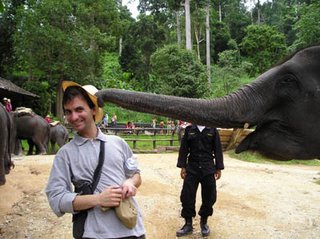
A little elephant love for mattias in Chiang Mai
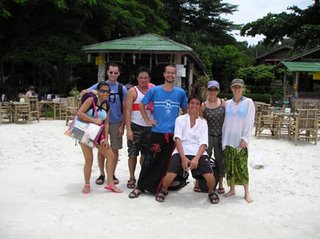
My Kohsamet beach friends, the soi dogs
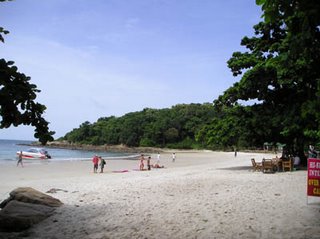
My favorite spot in Thailnd: Kohsamet
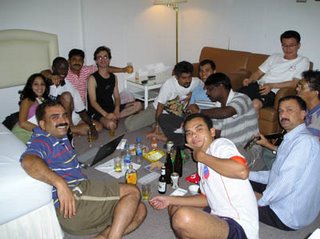
near the end of our program we decided we needed more more out of class time together. This was one of several "block parties" held in alternating rooms.
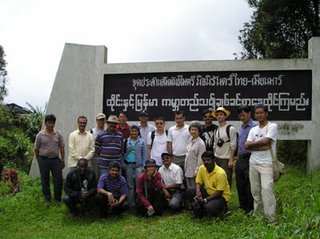
One of my favorite field trips was our journey to the Burma Thai border to look at a gas pipeline. The sign in the background marks the dividing line.
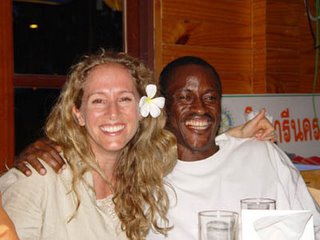
"Miss Universe" and the future president of Liberia at a very fun evening Rotary function.
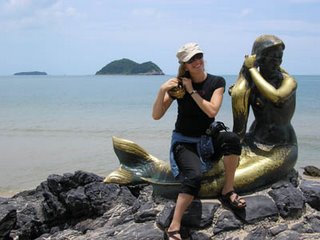
Our last field trip was to the south. This mermaid is the symbol at Songklah.
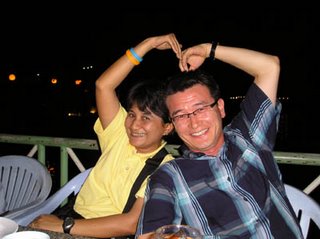
Deft and Kim, from Thailand and Korea respectively, hamming up over the river Kwai.
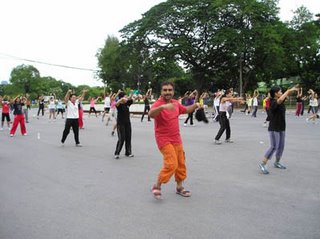
The Colonel tries out a little spontaneous aerobics in Lumpini park.
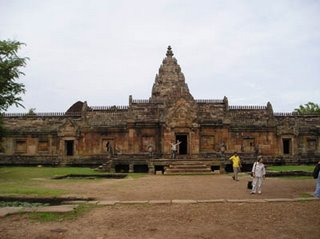
During one of our trips we stopped at this Khmer temple, similar, though much smaller, than Angkor wat in Cambodia
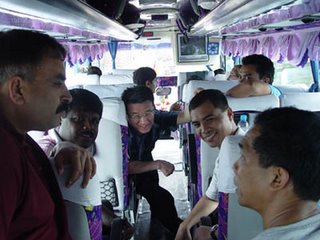
This was the fine bus we traveled in for hours on end for our first trip to visit dams all over the northeast. Good colors, no?
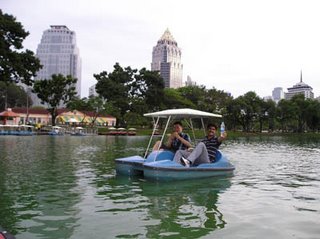
I was so thrilled to finally discover the presence of oxygen in Bangkok! we were so happy, we went on a boat tour of the lake.
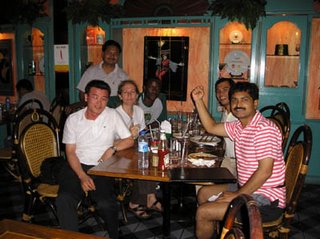
Well, it didn't take long for me to tire of Thai food, so you can imagine my joy when I discovered a Mexican Buffet held every Tuesday night. This night I even found a few converts!
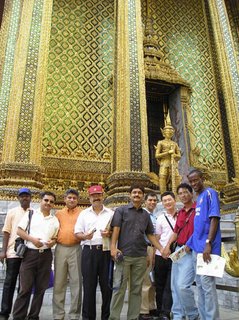
One of our group outings in Bangkok was to the Grand Palace.
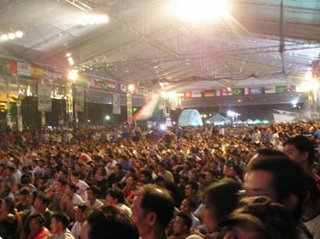
Because world Cup soccer played such a big part of my early days in Thailand, I had to include this one shot of the World Cup final at an outdoor space near the trade tower. I walked home at 4 a.m. as the revelers were getting wild!

But most of our time was spent in this room listening to lecturers from around the world. The great info made up for the bleak decoration scheme! :)
By the end of our time, even I had become a convert to the school canteen where we could get a great stir fry for only 15 baht (about $ .50)
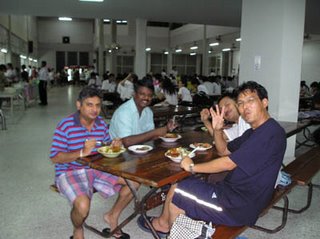

A little elephant love for mattias in Chiang Mai

My Kohsamet beach friends, the soi dogs

My favorite spot in Thailnd: Kohsamet

near the end of our program we decided we needed more more out of class time together. This was one of several "block parties" held in alternating rooms.

One of my favorite field trips was our journey to the Burma Thai border to look at a gas pipeline. The sign in the background marks the dividing line.

"Miss Universe" and the future president of Liberia at a very fun evening Rotary function.

Our last field trip was to the south. This mermaid is the symbol at Songklah.

Deft and Kim, from Thailand and Korea respectively, hamming up over the river Kwai.

The Colonel tries out a little spontaneous aerobics in Lumpini park.

During one of our trips we stopped at this Khmer temple, similar, though much smaller, than Angkor wat in Cambodia

This was the fine bus we traveled in for hours on end for our first trip to visit dams all over the northeast. Good colors, no?

I was so thrilled to finally discover the presence of oxygen in Bangkok! we were so happy, we went on a boat tour of the lake.

Well, it didn't take long for me to tire of Thai food, so you can imagine my joy when I discovered a Mexican Buffet held every Tuesday night. This night I even found a few converts!

One of our group outings in Bangkok was to the Grand Palace.

Because world Cup soccer played such a big part of my early days in Thailand, I had to include this one shot of the World Cup final at an outdoor space near the trade tower. I walked home at 4 a.m. as the revelers were getting wild!

But most of our time was spent in this room listening to lecturers from around the world. The great info made up for the bleak decoration scheme! :)
By the end of our time, even I had become a convert to the school canteen where we could get a great stir fry for only 15 baht (about $ .50)


